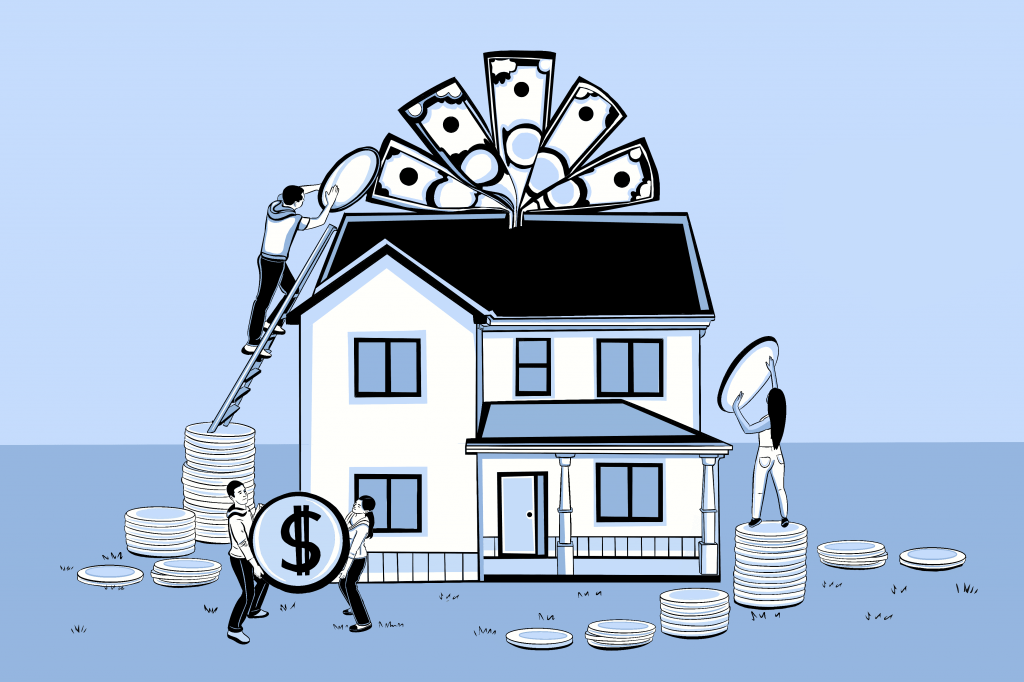Investing in real estate is a widely accepted strategy for building wealth and diversifying investment portfolios. When executed correctly, real estate investment can provide numerous benefits. This may include appreciation of property value, consistent rental income, and a tangible asset. Both seasoned investors and beginners can benefit from a comprehensive understanding of the benefits of real estate investing, as it will allow them to make informed decisions to achieve their financial objectives. This article will delve into the key advantages of investing in the real estate housing market, with a particular emphasis on growth potential and diversification.

Growth Potential of Real Estate Housing Market
The real estate housing market is an attractive investment option for many people due to its growth potential. Property values have a history of appreciating over time, with some markets experiencing substantial growth over the course of a decade. The growth potential of real estate investments can result in substantial returns for investors who take a long-term approach.
A. Increase in Real Estate Housing Market Values Over Time
Property values generally tend to increase over time due to a variety of factors such as inflation, population growth, and economic development. As the demand for housing increases, the value of real estate properties tends to rise.
Inflation is a major factor in the growth of property values. As the cost of goods and services rise, so too does the cost of housing. This increase in cost is reflected in the value of properties. This makes real estate a hedge against inflation.
Population growth is another factor that drives the growth of the housing market. As the population grows, the demand for housing increases, leading to higher property values. This increase in demand is particularly evident in urban areas where population growth is highest.
Economic stability is also a key factor in the growth of the housing market. When the economy is strong, people have more disposable income, which they can use to purchase property. This increased demand leads to higher property values, making real estate a safe haven for those looking to protect their wealth.

B. Leverage of Other People’s Money through Mortgages
The real estate housing market provides excellent growth potential for investors by leveraging other people’s money through mortgages. Using the property as collateral. In this scenario, the borrower only needs to put down a portion of the total cost of the property, while the lender provides the remaining amount. This allows the borrower to leverage the lender’s money to purchase a property that they would otherwise not be able to afford. The borrower then repays the loan, with interest, over a set period of time. By taking a mortgage, an investor can purchase a property that is worth much more than the amount they have invested, thereby increasing their returns. As the value of the property increases, so does the investor’s equity in the property, providing them with even more financial security.
Diversification Benefits of Real Estate Housing Market
Investing in real estate offers exposure to a different asset class than traditional stocks and bonds, which can help to balance the portfolio and reduce overall risk. Real estate prices are not directly correlated with the stock market, so owning real estate properties can help to mitigate the impact of market volatility on your investments. Diversification is a key principle in investing, as it helps to reduce risk by spreading investments across different assets. The real estate housing market can play a significant role in reducing risk through diversification.
A. Diversification of Investment Portfolio
Real estate housing can be a valuable addition to an investment portfolio due to its potential for steady income through rent, long-term appreciation of property value, and its role as a hedge against inflation. The real estate market is relatively uncorrelated to other traditional financial markets, providing diversification benefits to an investment portfolio.
B. Reduction of Risk Through Spread of Investments
The real estate market goes through different cycles, including periods of growth, stability, and decline. Understanding these cycles can provide investors with opportunities to maximize returns and minimize risk.
During a growth cycle, the demand for real estate is high, and property values are appreciating. This can provide an opportunity for investors to purchase property at a lower price and sell it at a higher price in the future.
In a stable market, demand and supply are in balance, and property values are not appreciating or depreciating significantly. This can provide an opportunity for investors to purchase property with the expectation of consistent rental income.
In a decline cycle, demand for real estate is low, and property values are depreciating. This can provide an opportunity for investors to purchase property at a lower price and hold onto it until the market turns around. Different real estate market cycles can provide different investment opportunities for investors.
C. Potential for Inflation Hedge
The real estate market has the potential to act as an inflation hedge, as property values tend to rise over time, outpacing inflation. Inflation erodes the value of money over time, and investing in assets that increase in value at a rate that outpaces inflation can help to mitigate the impact of inflation on an investment portfolio. This can help to protect the purchasing power of investments in real estate. Real estate is one such asset, as property values tend to appreciate over time, especially in areas with strong economic growth and high demand for housing.
The real estate market has the potential to act as an inflation hedge, as property values tend to increase over time and provide a source of rental income, helping to protect the purchasing power of investments and provide a stable stream of income.


